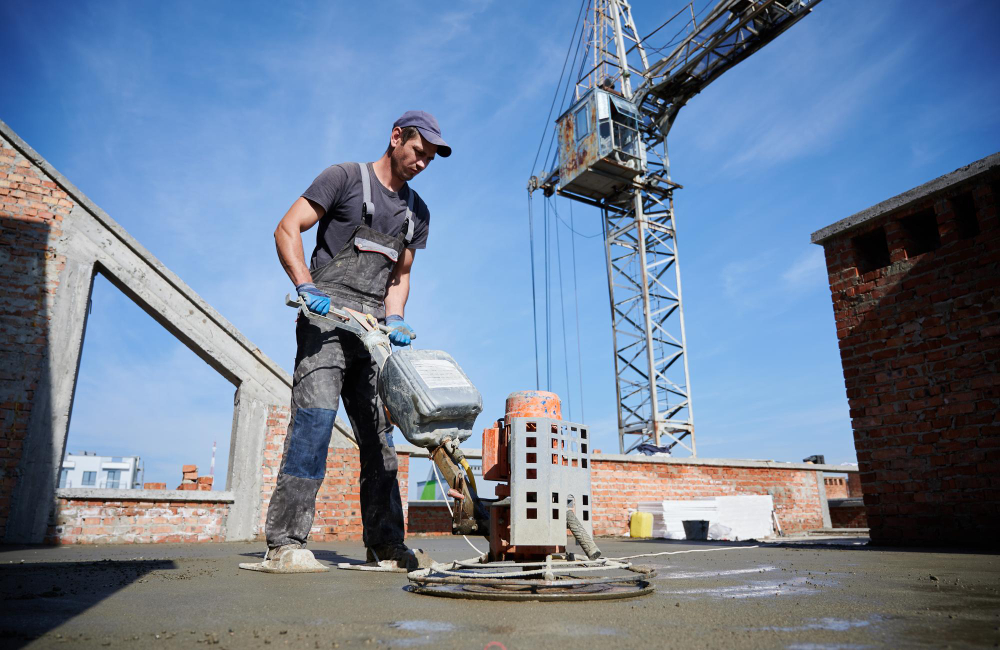When it comes to maintaining your home, few issues are as critical and potentially catastrophic as foundation problems. Not only can foundation damage significantly reduce the safety and value of your property, but it can also lead to a plethora of other structural issues.
Here is where service providers of foundation repair in St. Louis come to save you. To help you out more, in this guide, we’ll dig into everything you need to know about foundation repair – from identifying signs of damage to understanding repair options and preventing future problems. Let’s just get into it, shall we?
Understanding Your Foundation
The foundation is essentially the base on which your entire home rests, so its integrity is crucial to the stability of the structure. There are several types of foundations, including slab, crawl space, and basement. Each type comes with its unique challenges and vulnerabilities.
Common Causes of Foundation Damage
Soil Issues
The type of soil your home is built on can significantly impact your foundation. Soils that expand and contract with moisture levels (like clay) can cause movement and damage.
Water Damage
Improper drainage can lead to excess moisture around the foundation, which can cause the soil to swell or erode, undermining the foundation.
Tree Roots
Large tree roots can grow toward your foundation in search of moisture, eventually pushing against and cracking the foundation.
Poor Construction
Inadequately designed foundations or the use of substandard building materials during construction can also lead to problems down the line.
Age
Like most things, foundations deteriorate with age. Over time, even minor cracks can evolve into major structural issues.
Recognizing the Signs of Foundation Damage
Timely identification of foundation issues can help prevent minor problems from escalating into major repairs. Key indicators include:
Cracks in Walls or Flooring
Cracks can appear both inside and out. Vertical or diagonal cracks in walls, especially around doors and windows, can suggest foundation shifting.
Sticky Doors and Windows
If doors or windows begin to jam or fail to close properly, it could indicate that the foundation has shifted.
Sloping Floors or Ceilings
Noticeable unevenness in flooring or ceilings may be a sign of foundation settlement or shifting.
Gaps Between Walls and Ceilings:
Visible separation in areas where walls meet ceilings can indicate movement and shifting of the entire structure.
Moisture in Basements or Crawl Spaces
Excessive moisture or pooling water can point to poor drainage around the foundation, exacerbating potential damage.
Professional Inspection and Diagnosis
Upon noticing signs of foundation distress, a professional inspection by a qualified service provider of foundation repair in St. Louis is imperative. These experts can assess the severity of any damage and identify the root cause to recommend the most effective repairs.
Foundation Repair Methods
Repair techniques vary based on the foundation type and the extent of the damage. Some common methods include:
Underpinning
This involves extending the foundation in depth or breadth to more stable soil or bedrock. Techniques, like push piers, helical piers, and slab jacking, are commonly used to correct foundation settling.
Sealants and Masonry Patches
For minor cracks, hydraulic cement or epoxy injections can seal gaps and prevent water infiltration, helping to stabilize the area.
Drainage Solutions
Proper exterior and interior drainage systems, including French drains and sump pumps, can redirect water away from the foundation, mitigating the risk of damage.
Root Barriers
These are installed to divert tree roots away from the foundation, reducing the risk of physical disruption and moisture variation in the soil.
Costs and Considerations
Foundation repair costs can vary dramatically – from a few hundred dollars for minor crack filling to tens of thousands for extensive underpinning projects. Factors affecting cost include the extent of damage, repair method, and regional labor rates. Obtaining multiple assessments and quotes from reputable contractors in foundation repair in St. Louis is advisable to ensure fair pricing and service guarantees.
Preventing Future Foundation Problems
Long-term maintenance is key to preventing foundation issues. Ensuring proper soil moisture levels, maintaining effective drainage systems, and conducting regular inspections can help detect and address potential problems early. Proactive measures not only extend the life of your foundation but also help avoid costly repairs.
Conclusion
A well-maintained foundation is essential for the longevity and safety of your home. Understanding the signs of foundation damage, and knowing when to seek professional help are all crucial for preserving the structural integrity of your home.
As we mentioned before, it is always seeking the services of foundation repair in St. Louis. Proactive foundation care is a worthwhile investment in the overall health of your property. So, don’t ever think twice when it comes to safeguarding your home.
